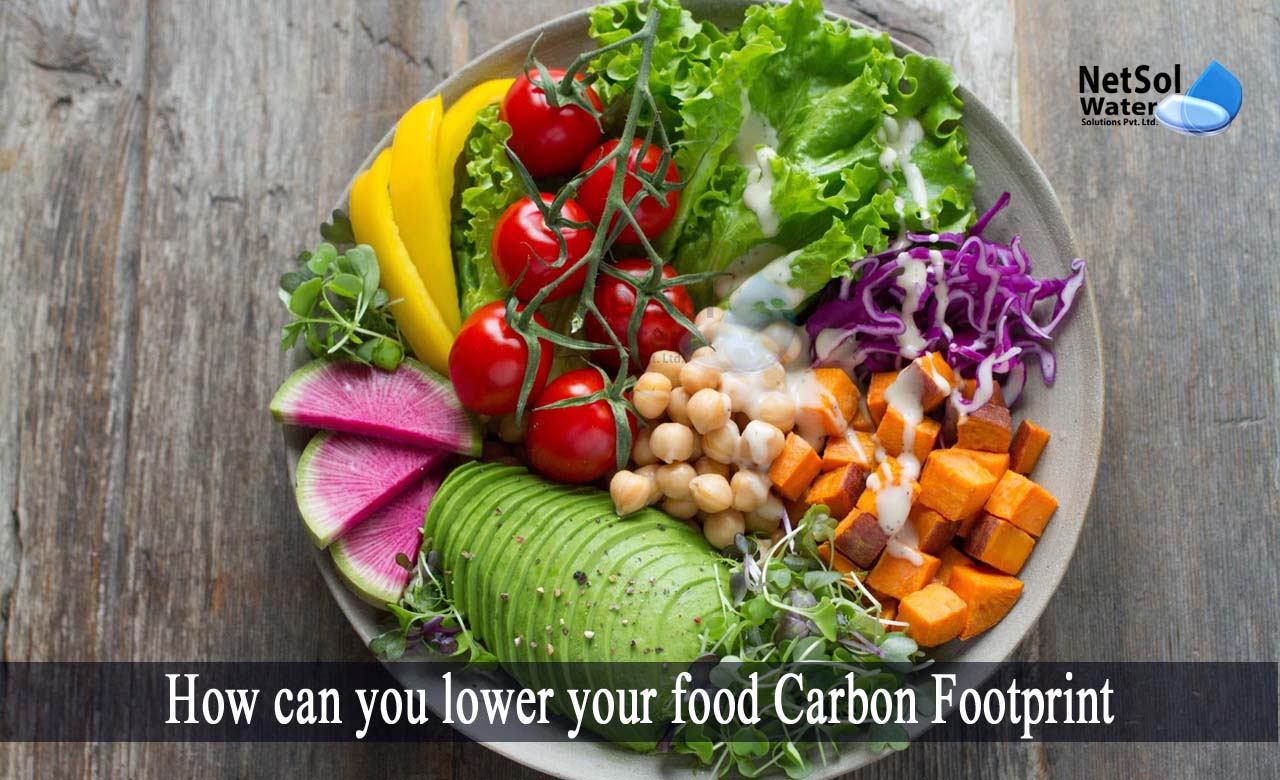How can you lower your food Carbon Footprint?
The greenhouse gas emissions caused by the production, cultivation, processing, transportation, storage, cooking, and disposal of the food you consume, are known as the foodprint, or carbon footprint of the food.
Changing your diet can significantly reduce your carbon footprint, along with lowering pollutants, protecting the environment, and reducing global warming. Many of these adjustments will help you save money, enhance your health, and even maintain your fitness level.
This article will give you a glimpse of how we can lower our food’s carbon footprint or foodprint.
· Make a choice for organic food
Food that is organic can be obtained in a variety of ways, and is grown using a variety of farming techniques. However, if you purchase organic food, you can generally be sure that it was grown using fewer or no chemicals, than those that are typically used for fertilization, pest control, and preservation.
It should go without saying that consuming fewer chemicals is better for your body. However, it also implies that you are no longer endorsing the industrial manufacturing, and use of chemicals, which are goods with a huge carbon footprint.
· Consume less meat
It takes a lot of land and other resources to produce final meat products, making meat a resource-intensive food source. Livestock causes a lot of methane production and catalyses deforestation, which results in emissions and the loss of an important carbon sink.
By consuming high-protein plant-based foods instead of meat, like beans, you may lessen your own carbon footprint, while also attempting to lower the world's demand for meat, and the effect that food has on the climate.
This does not need you to completely cut out meat and other animal products, from your diet. In reality, healthy livestock raised in a bio diverse food system can operate as a beneficial tool, for nutrient cycling and can provide delicious, nutrient-dense meals.
Saving meat for special occasions and only purchasing organic meat, on the other hand, can significantly lower your contribution to carbon emissions. This is why, it's crucial to create a more mindful relationship with meat.
· Buy locally
There are several advantages to shopping locally in addition to lowering your emissions, by reducing the distance your food must travel. If you can purchase food, directly from local small-scale farmers or farmers in your neighbourhood, it's likely that their products are not included in large-scale food supply chains.
Thus, there is a lower likelihood that the gear and procedures used to create their food were industrial. Another great approach to keep money flowing, in your neighbourhood economy, is to buy local.
· Make more home-cooked meals
Cooking at home enables you to take more ownership of the materials that go into the food you consume, empowering you to make more responsible and knowledgeable choices, regarding your food's carbon footprint. By cooking enough food for several meals at once or conserving and eating leftovers, you can reduce food waste and the carbon emissions, which come from cooking with careful planning.
By using food that you have grown yourself, and turning food waste into carbon-absorbing compost and soil, rather than letting it rot in a landfill, you can lessen this impact even further.
· Begin a garden
Growing your own food is a great method to reduce many of the emissions, linked to food production globally. You might be able to grow and consume food totally, without using fossil fuels, depending on your environment and your availability to seeds.
Growing plants, particularly those that yield food, aids in the absorption and conversion of carbon dioxide, sequestering it and turning it into oxygen. By creating a composting system, a garden is a great method to turn food waste into fertilizer. Moreover, it can help you supplement your diet with crops, which are rarely found in more carbon-intensive supply chains.
· Reducing, re-using, and recycling
We can think of ways to lower our carbon footprints, by following the maxim of "reduce, reuse, recycle."
By being more careful when you shop for food, you can decrease the amount of food that goes to waste immediately. Buying less and only what you need will reduce waste emissions from landfills, and if we all do this, we can decrease our demand for food, and lessen the impact of our carbon-intensive food systems.
By purchasing products in bulk from local suppliers, and choosing produce with the least amount of packing necessary, we can also reduce the amount of packaging we create and discard.
Conclusion
Taking a carbon footprint measurement of your own is a fantastic place to start!
You may gain a far more thorough understanding of how and where you are emitting emissions, by using the Carbon Footprint Calculator. We can also follow sustainable measures to minimize food waste, by re-using, and recycling it.
How can we assist?
Netsol Water, the global solution provider to water, wastewater and solid waste problems, manufacturers a wide range of organic waste recyclers and food waste recyclers, to recycle the solid waste, and convert it into useful fertilizer to enhance soil quality, and condition it.
Netsol Water is Greater Noida-based leading water & wastewater treatment plant manufacturer. We are industry's most demanding company based on client review and work quality. We are known as best commercial RO plant manufacturers, industrial RO plant manufacturer, sewage treatment plant manufacturer, Water Softener Plant Manufacturers and effluent treatment plant manufacturers. Apart from this 24x7 customer support is our USP. Call on +91-9650608473, or write us at enquiry@netsolwater.com for any support, inquiry or product-purchase related query.



